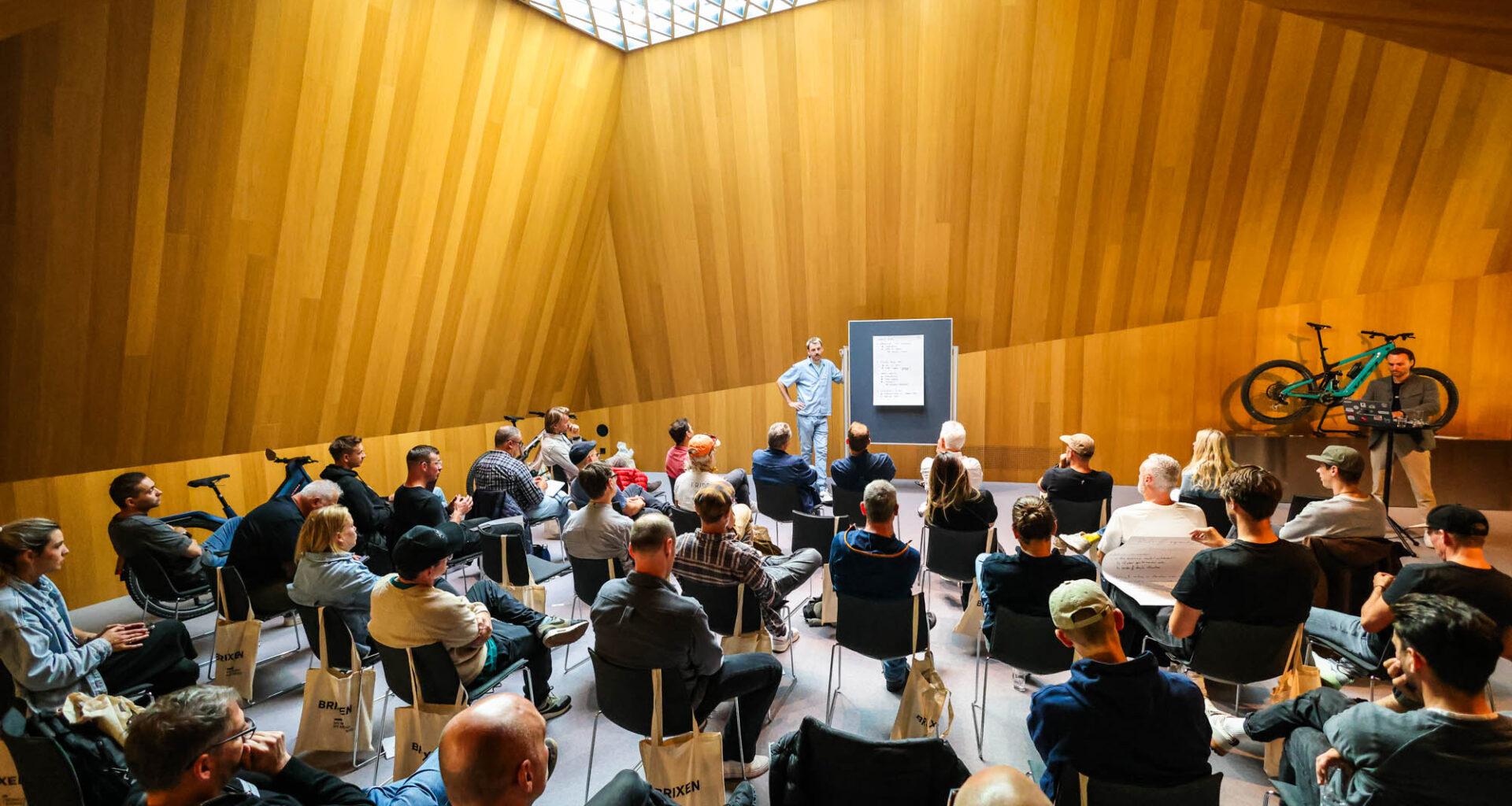If the bike industry were a patient, the diagnosis would be grim: chronic short-term thinking, acute ego inflation, and dangerously low levels of honesty and communication.
We’ve all felt it – overstock, discounts that insult the craft, venture capital gone cold, and endless debates about watts and wheel sizes instead of purpose. And a looming bike-leasing boomerang.

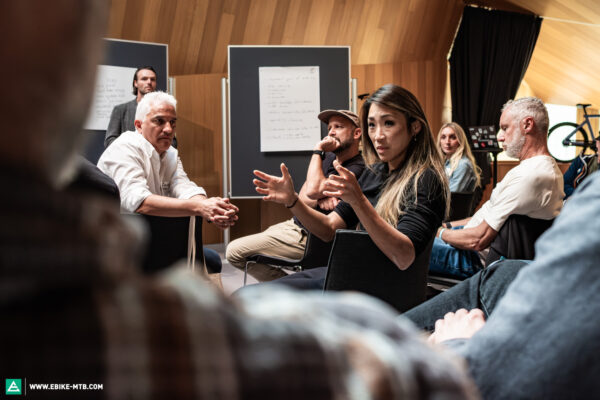
For too long, we’ve mistaken geeky passion for direction – and growth for long-term vision. During the last bike boom, we chased numbers, not meaning. Scaled fast but built shallow.
Like a sick patient asking for painkillers, we keep patching symptoms instead of healing causes. But storms, as they say, have two purposes: to destroy what isn’t solid – and to reveal what is. And right now, the storm shaking the bicycle industry might be exactly what we need.
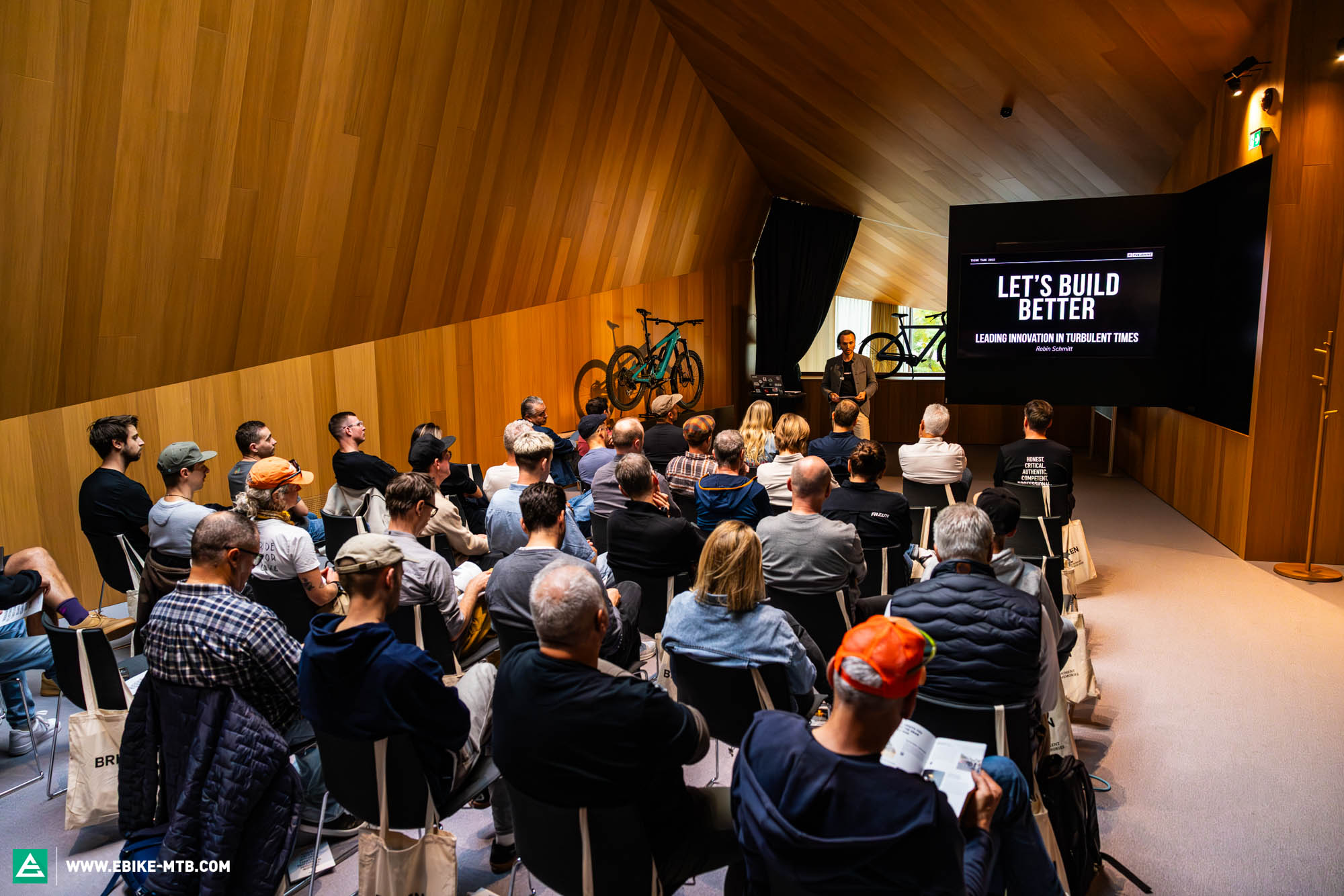 “Leading innovation in turbulent times.” 41 Publishing’s Robin Schmitt opened the Think Tank in Brixen’s grand library with an inspiring keynote on building a better bike industry.“
“Leading innovation in turbulent times.” 41 Publishing’s Robin Schmitt opened the Think Tank in Brixen’s grand library with an inspiring keynote on building a better bike industry.“
Playing it safe is the new risk
Before the Think Tank, we got dozens of requests: “Can we talk about 32-inch wheels? The 750W regulation? E-bike racing?”
We said no – not because those things don’t matter, but because they’re not what matters now.
Before solving symptoms, we need to understand the causes. Before taking action, we need direction. Before talking specs, we need purpose – and above all, a clear vision of where we want to go.
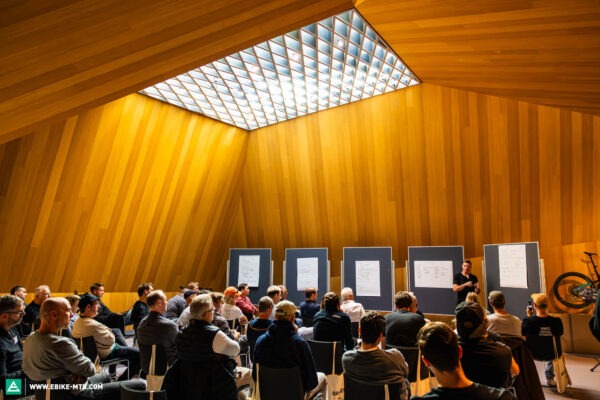
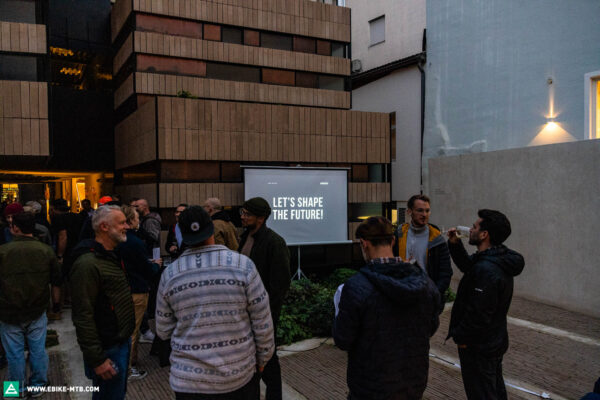
The bike industry will survive this storm – but will it come out stronger or weaker? What big and small players will die along the way? Will we learn and evolve, or just hit repeat on the same mistakes? Failure isn’t the problem. Our response is. That’s what decides whether we grow or stay stuck.
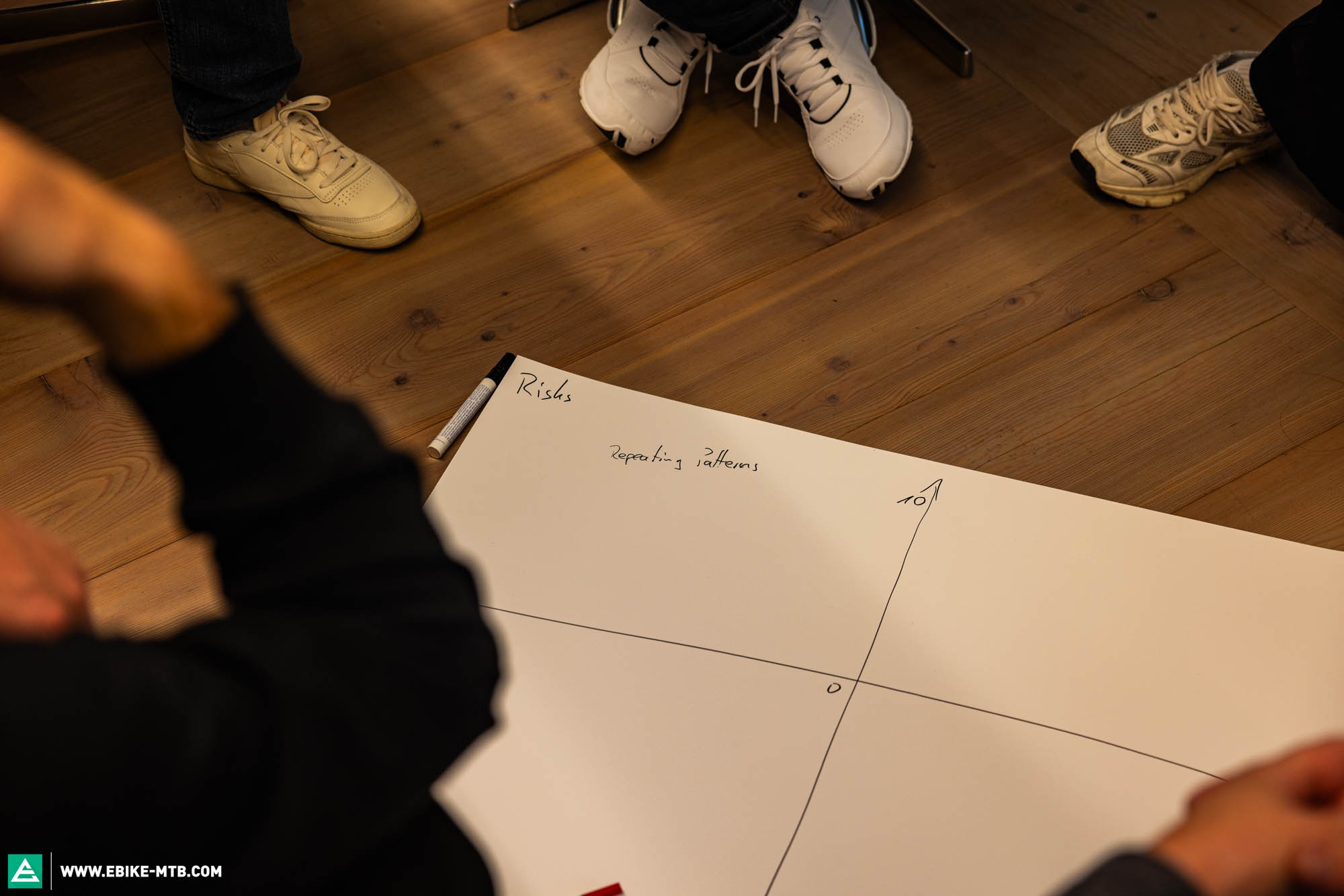
The safest move now is to dare. Big, established brands that seemed untouchable a decade ago are now struggling, as new players and fresh competition rewrite the rules. Media is struggling too – big time. In a world flooded with generic AI content, what’s at stake isn’t just quality, but direction, clarity, and vision.
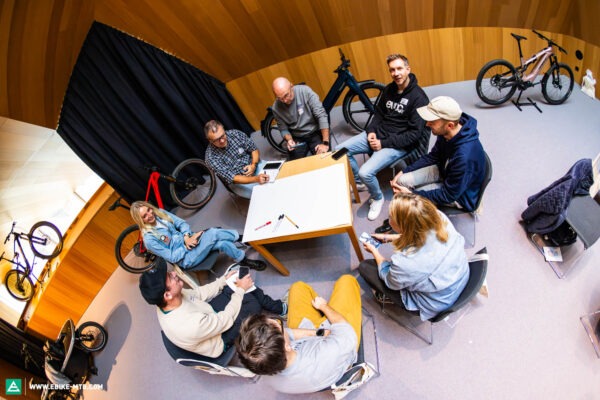
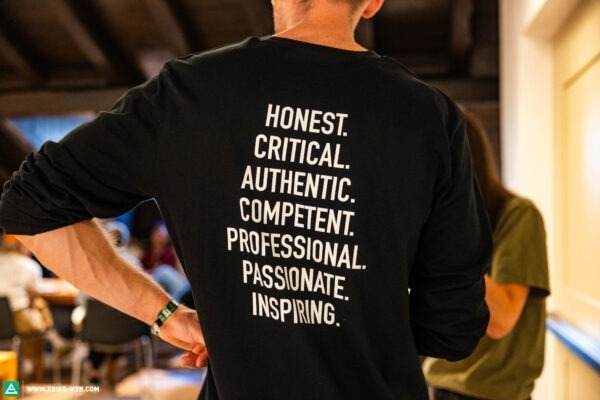
Either you innovate – or you stall. The best will adapt fast, take position, and rise to lead again. The rest will keep playing by old rules in a game that’s already changed.
That’s why we’re doubling down at 41 Publishing – strengthening our core, creating new roles, and opening new opportunities. Just like this Think Tank. We’ve always been about shaping trends and inspiring the bike world. And this is what Brixen was all about.
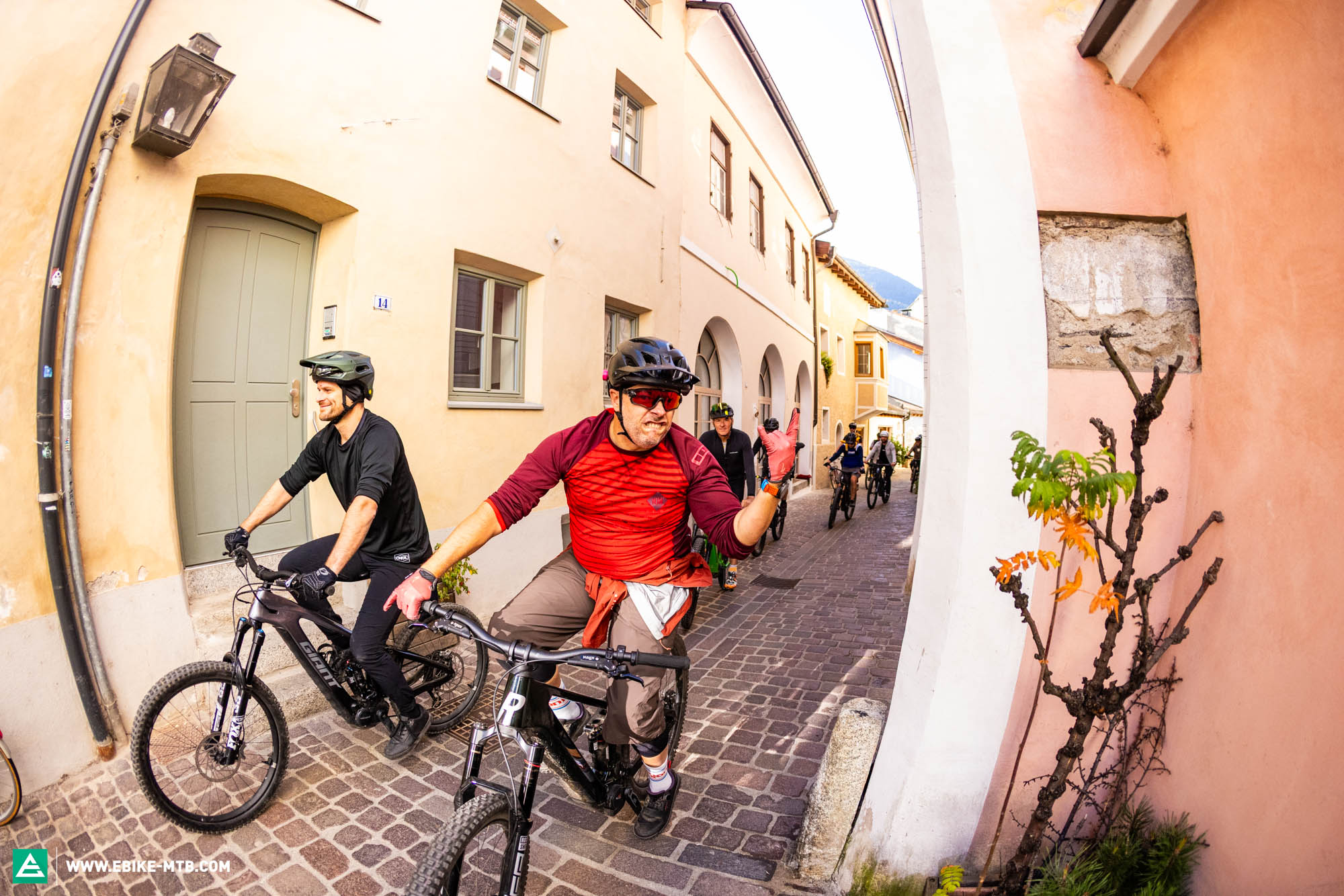
41 Think Tank in Brixen: Innovation on another level
From the first ride to the last glass of wine, one thing was clear: this wasn’t another industry event. It was a reset. A collective deep breath after a few seasons that left most people – let’s be honest – completely drained. All known and public issues: overstock, shrinking margins, discounts for survival, and way too many “game changers” that didn’t really change much.
At some point, we stopped asking “why” and just tried to survive the “what next.”
That’s why 41 Publishing brought everyone here – to strip the noise, park the ego, and remember what this is actually about.
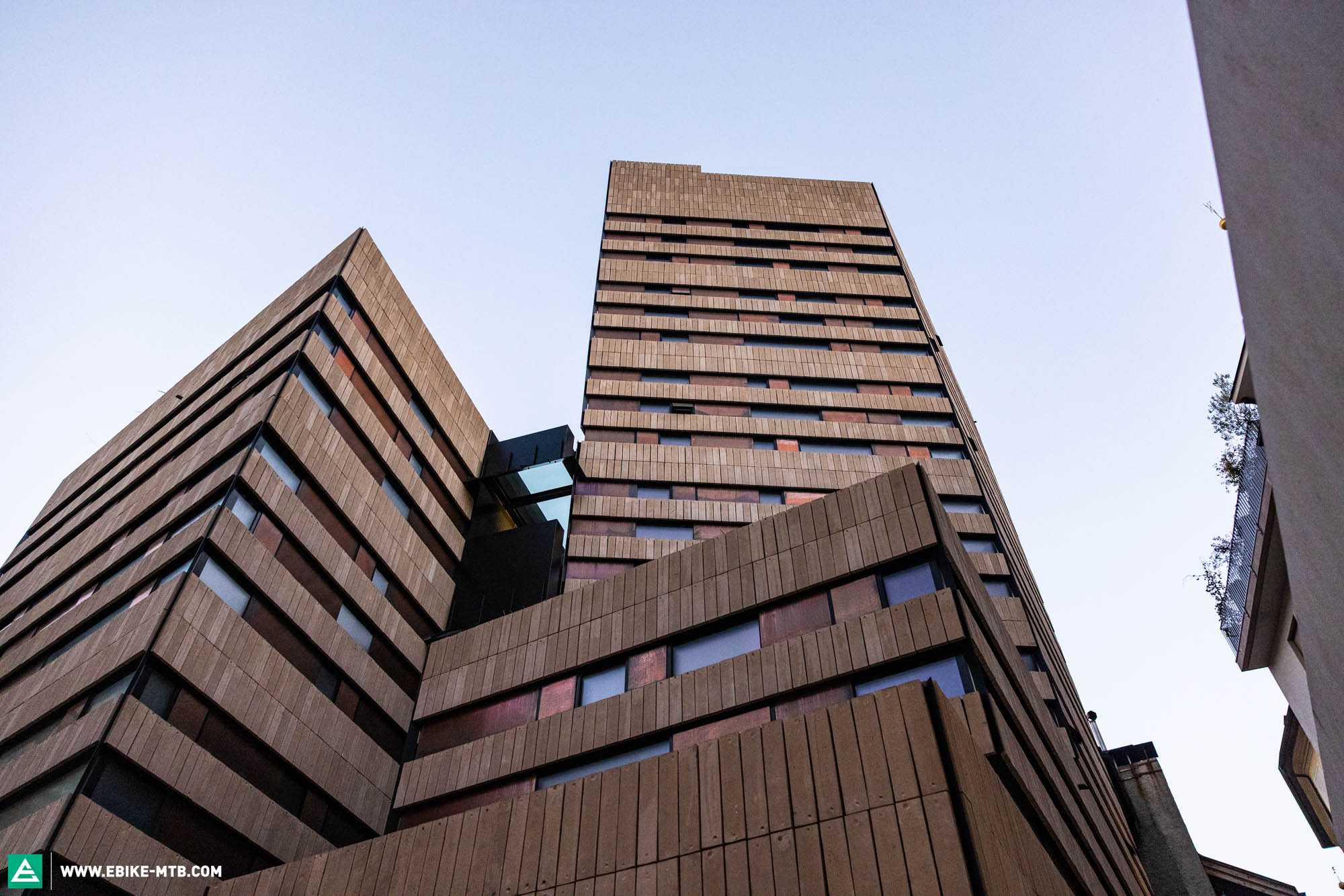
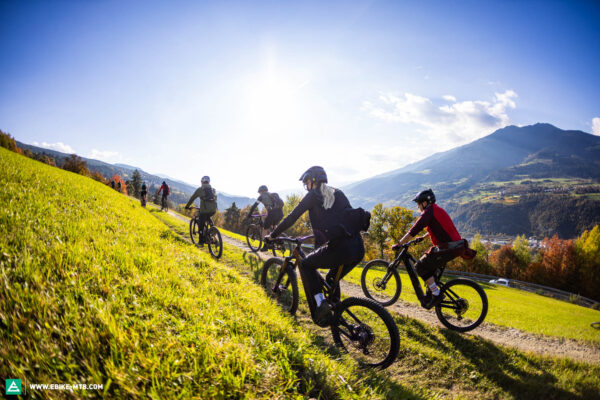
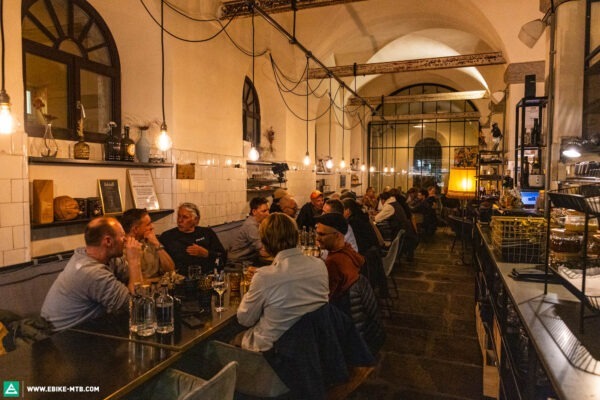
Here, that was Brixen. A place that looks like a postcard but feels like a lab for what’s next.
Where medieval walls meet bold architecture, alpine trails meet urban rhythm, and tradition merges with innovation. You can feel it in the locals’ mindset – exactly the balance our industry needs.
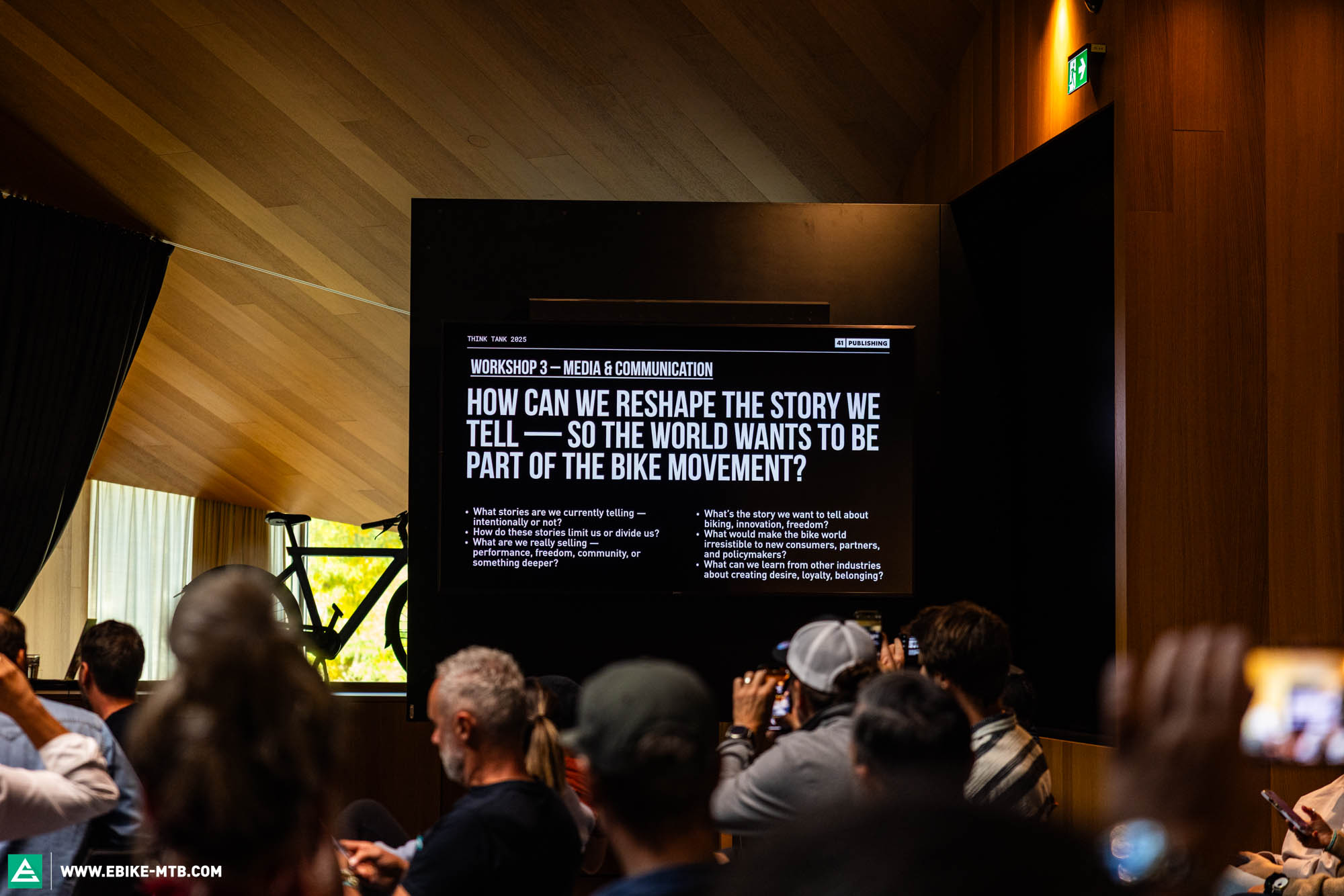
At our Think Tank in Brixen, we gathered some of the brightest minds in the bike world – CEOs, engineers, brand shapers, and visionaries. Not to complain. Not to blame. But to create. Because the hardest part isn’t finding answers – it’s asking the right questions.
For too long, the industry has obsessed over tech specs and product details. This time, we did the opposite. We stopped the tech talk on purpose – because before we build solutions, we need direction. Before we scale, we need vision.

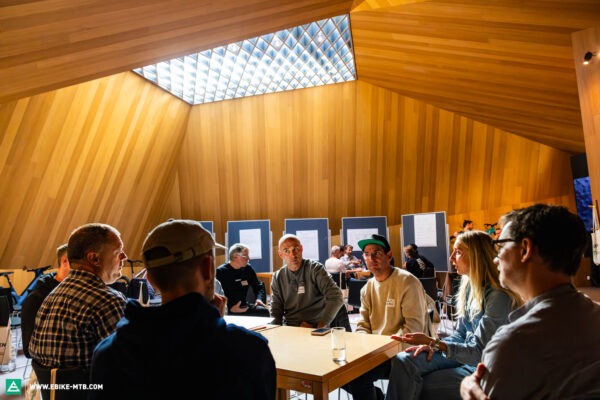
Because behind all the spreadsheets and press releases, one question kept floating around:
If cycling stands for freedom, why does our industry feel so stuck?
That line kind of became the background noise of Brixen 2025.
You could feel it in the room – in the way people talked, listened, and didn’t pretend.
We weren’t there to pitch. We were there to look at ourselves, together, and ask the hard stuff out loud.
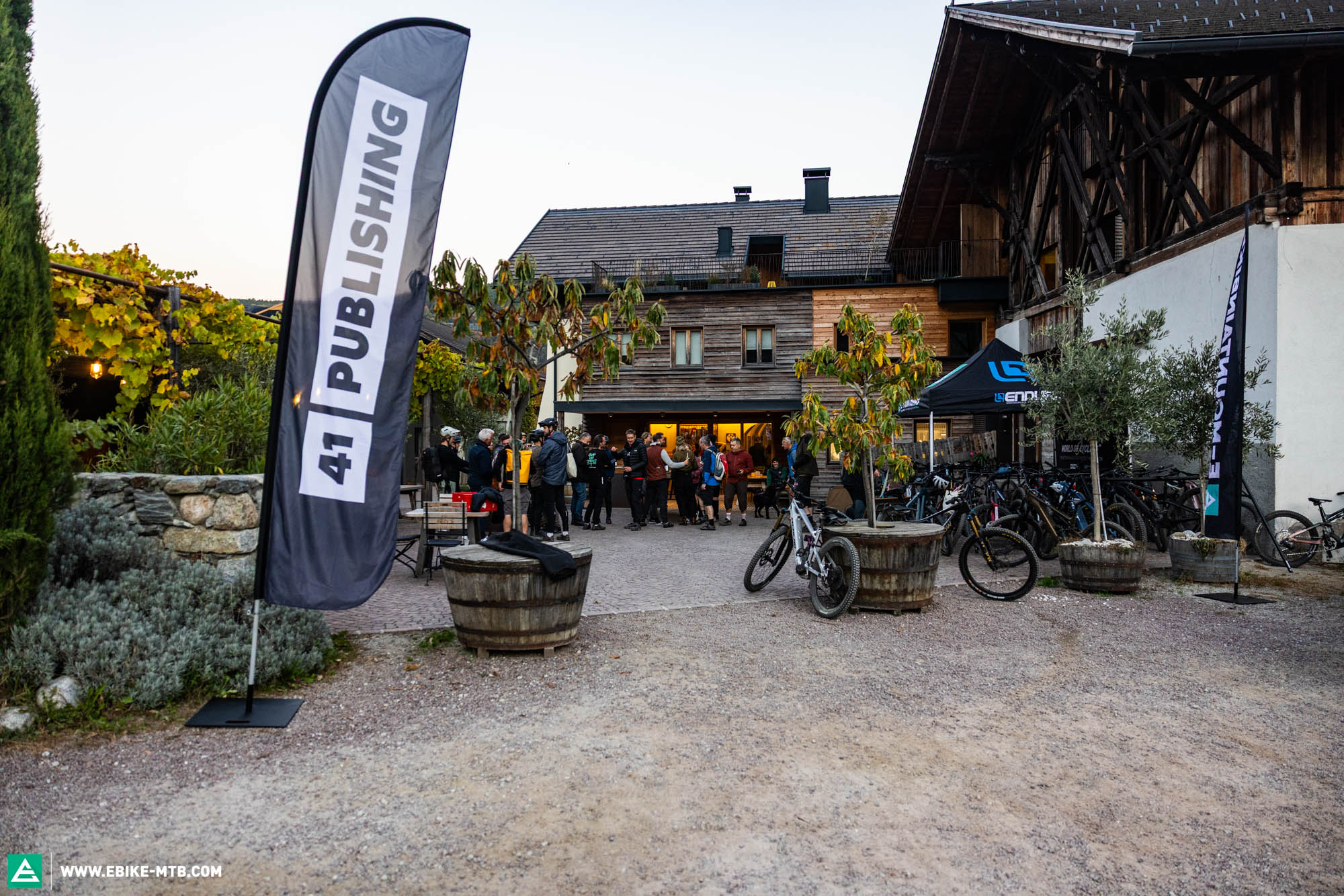
Are we asking the right questions?
No big stages. No inflated egos. No endless PowerPoints. Inside Brixen’s modern library – a place full of stories and ideas – is where we got down to business. Short keynotes, bold questions, no-bullshit workshops that cut through the daily noise and real talk. Big players and direct competitors – side by side: Accell Group, Aventon, Avinox/DJI, Bosch, Crystal Communications, DIMB, Eightpins, EMBN, Evoc, Fazua/Porsche, Giant, Haibike Design Center, Hepha, Mahle, maxon, Momes, Panasonic, RAAW, Riese & Müller, Rotwild, Specialized, SRAM, TQ, Yamaha, ZEG…
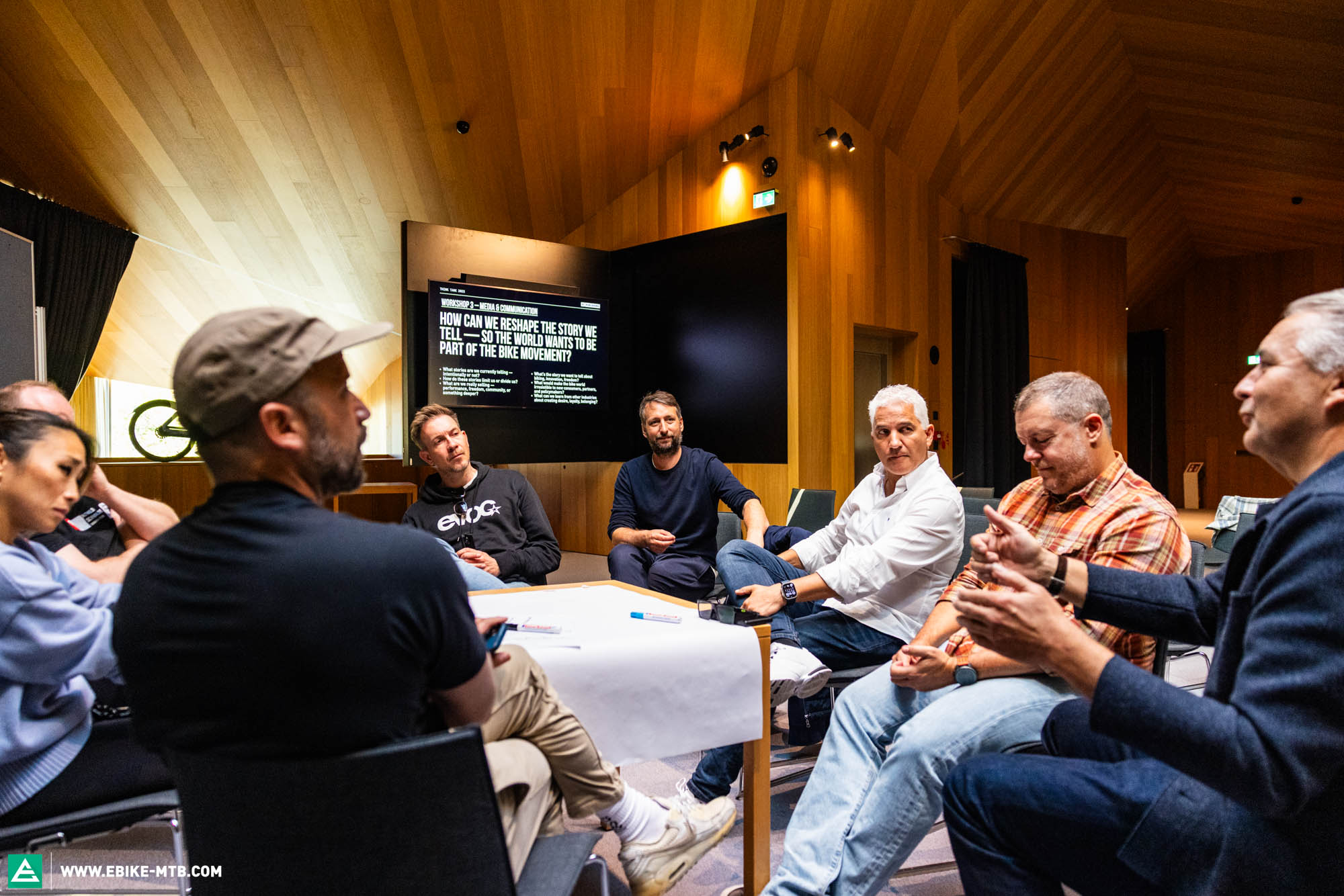 Avinox/DJI, Specialized, SRAM, Mahle, TQ, Rotwild, 41 Publishing… all at one table.
Avinox/DJI, Specialized, SRAM, Mahle, TQ, Rotwild, 41 Publishing… all at one table.
We’d have loved to host more industry voices – even some readers – but space was limited. Our Think Tanks are exclusive by design, but their results are not. Our goal is to share, inspire, and push the bike world forward. And the same goes for the workshop questions.
Workshop 1 – Status Quo: Identifying Current Risks and Repeating Cycles
Before we can build better, we must understand what holds us back. The unspoken truths. The blind spots. The patterns we repeat – year after year. Because only those who see clearly can change direction.
Key questions:
What are the current risks in the bike world?
Which mistakes or reactions keep repeating themselves?
Where are we still playing the same game, expecting different results?
What structural or cultural habits make progress hard?
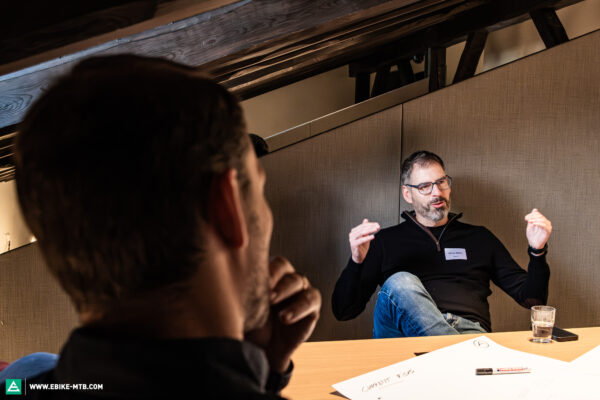
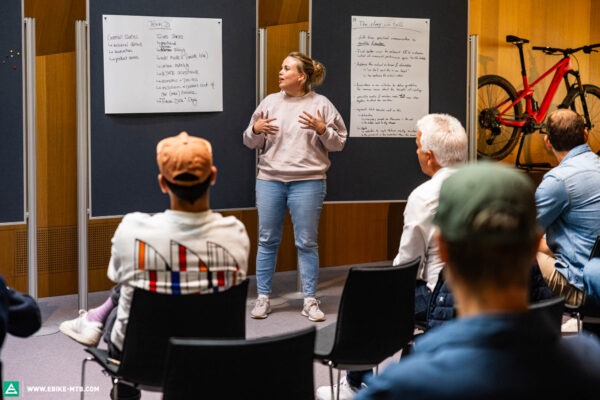
Workshop 2 – Industry Transformation: What Needs to Change?
This session was about perspective. We asked participants to forget the “how” and imagine the “what if.” What would a flourishing bike industry look like seven years from now – if there were no limits?
The vision: An industry driven by collaboration instead of fear. By values instead of discounts. By courage instead of conformity.
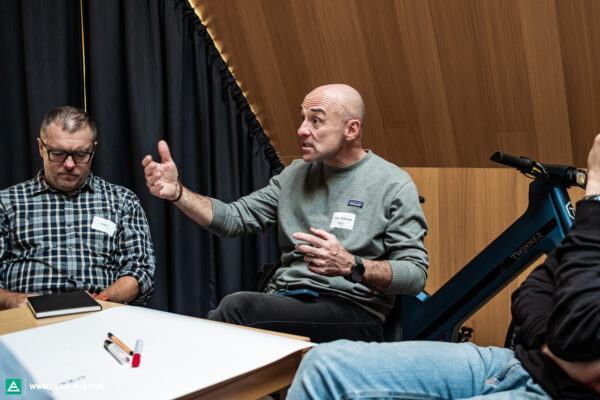
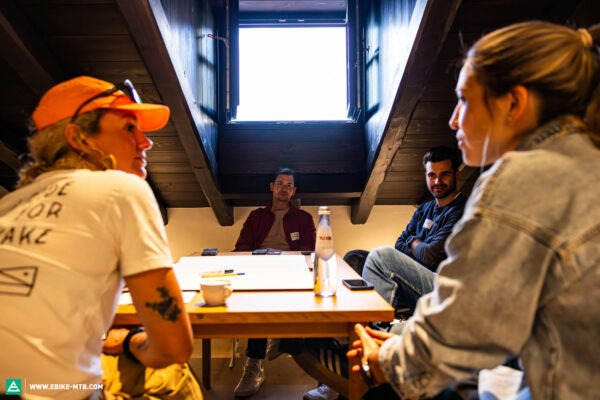
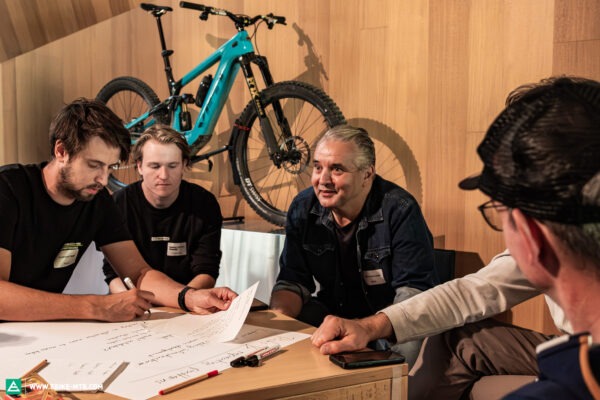
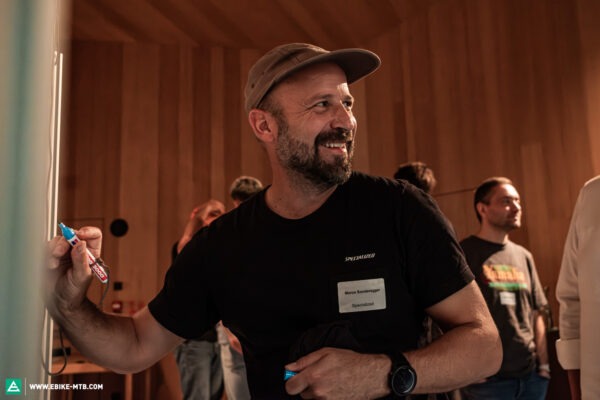
Workshop 3 – Media & Communication: Shaping the Narrative
Stories create reality. And right now, the story our industry tells – fragmented, defensive, fear-driven – holds us back. So we asked: How can we reshape the narrative so the world wants to be part of the bike movement again?
We can’t build a strong industry on weak stories. Culture is communication – and our future depends on both.
Key questions:
What stories do we tell – intentionally or not?
What are we really selling – performance, specs, price points or belonging?
What story would make biking irresistible to new riders, partners, and policymakers?
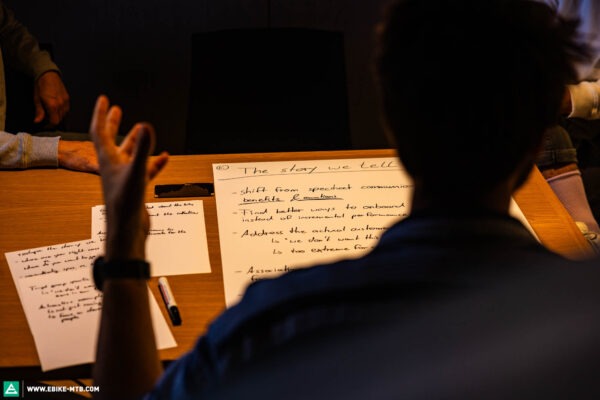
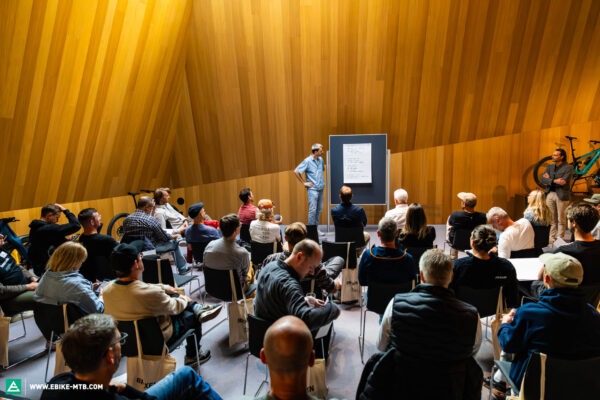
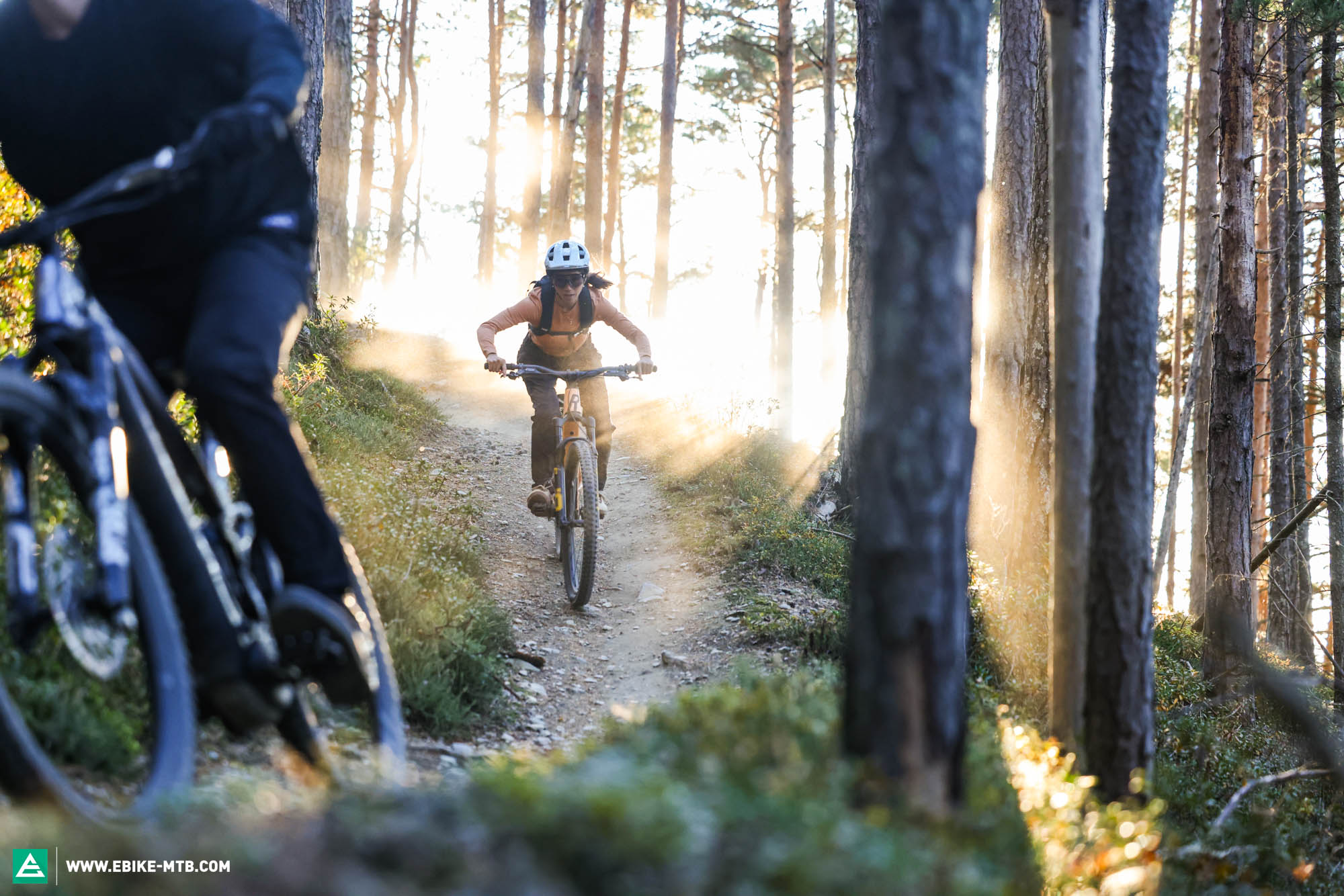
The Big Conversations
Once the workshops kicked off, things got real fast.
It wasn’t comfortable. Debates got heated. Egos got bruised. But it was real. And despite all the professionalism, it was a lot of fun and inspiring.
“Is actual innovation dead?” someone asked. The silence said everything.
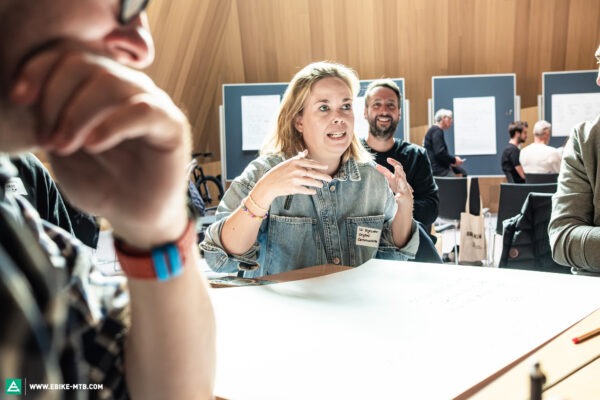
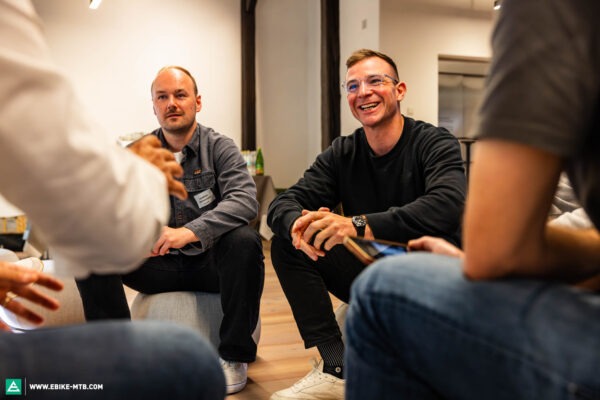
First: how we sell bikes – or rather, what we sell.
Someone called it ingredient marketing, and everyone knew exactly what they meant.
Bosch, DJI/Avinox, Shimano, FOX, SRAM… they’re the stars of our ads.
We’ve turned bikes into shopping lists.
When you sell parts instead of purpose, don’t be surprised if people stop remembering your name.
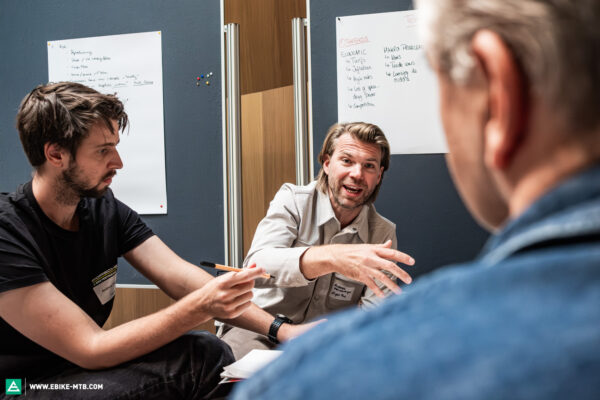
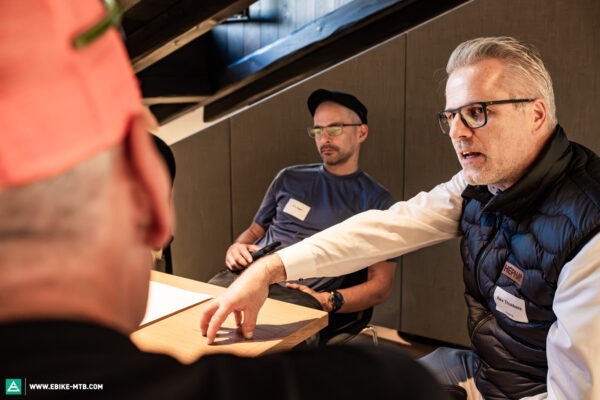
Then: the dealer gap.
There’s a massive gap between the stories brands tell and what actually happens on the shop floor. Dealers play a crucial role in directing customers’ attention.
Unfortunately, too many take the easy route – driving sales through discounts or tech specs like the latest Bosch or Avinox motor and battery size – instead of conveying brand values, emotion, and experience. Or simply because they’ve never been properly educated by the brands.
As someone once said: “We can’t expect riders to believe in magic if half our dealers don’t.” Exactly.
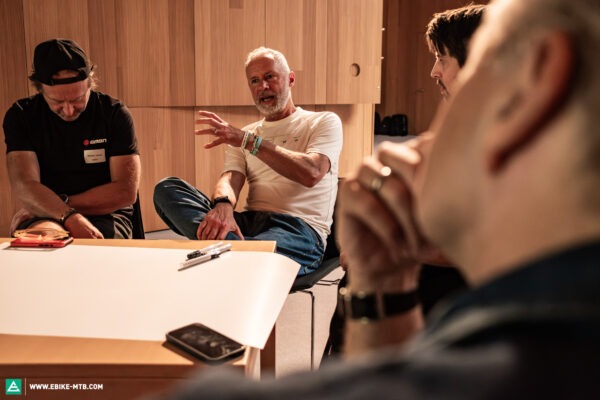
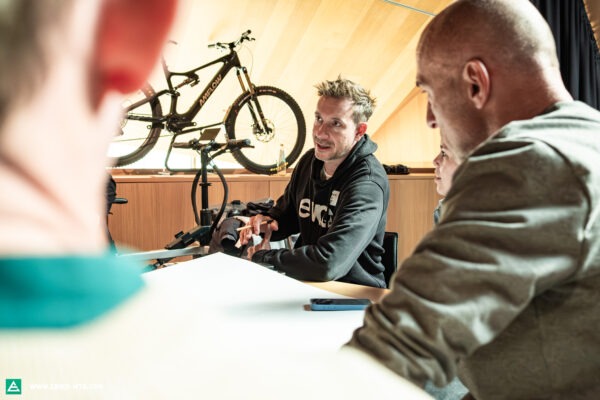
Next: the copy-cat disease.
Same geometry, same suppliers, same tone of voice.
We’ve built an industry that’s brilliant at imitation and scared of imagination.
Real differentiation takes guts – and guts don’t always survive the spreadsheet meeting.
And of course, data and forecasting – or the lack of both.
In 2025, we still run this industry on Excel and good intentions. The industry still operates much like it did in pre-internet times – the only change is that emails replaced fax. It’s highly inefficient, and that’s one of the reasons we’ve seen the same cycle for decades: periods of overstock followed by no stock. Forecasts two years ahead for markets that change in six months. It’s like riding blind into a double black descent, hoping you guessed right, where the landing of that big jump is.
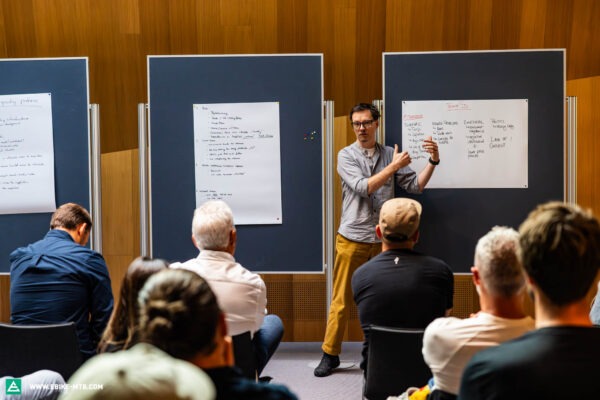
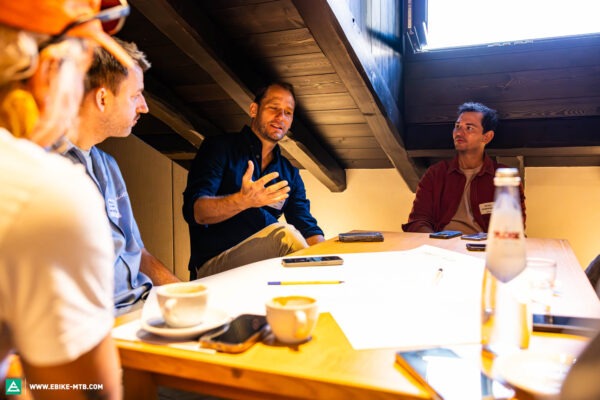
By the end of the day, the pattern was obvious:
The geeky obsession with components kills storytelling, weak storytelling weakens dealers, weak dealers kill trust – and when trust goes, everything else goes with it.
We keep refining the product.
But we’ve forgotten the purpose.
We rarely rethink anymore. So: Is actual innovation dead?
The Turning Point
Somewhere between the debates and the dinners, something shifted. The tone softened. The walls dropped. People stopped defending – and started admitting.
“If we keep these conversations inside these walls,” someone said, “nothing changes.”
That was the spark. The realization that the industry doesn’t lack ideas – it lacks honesty. And honesty is contagious. We talk plenty, but rarely together.
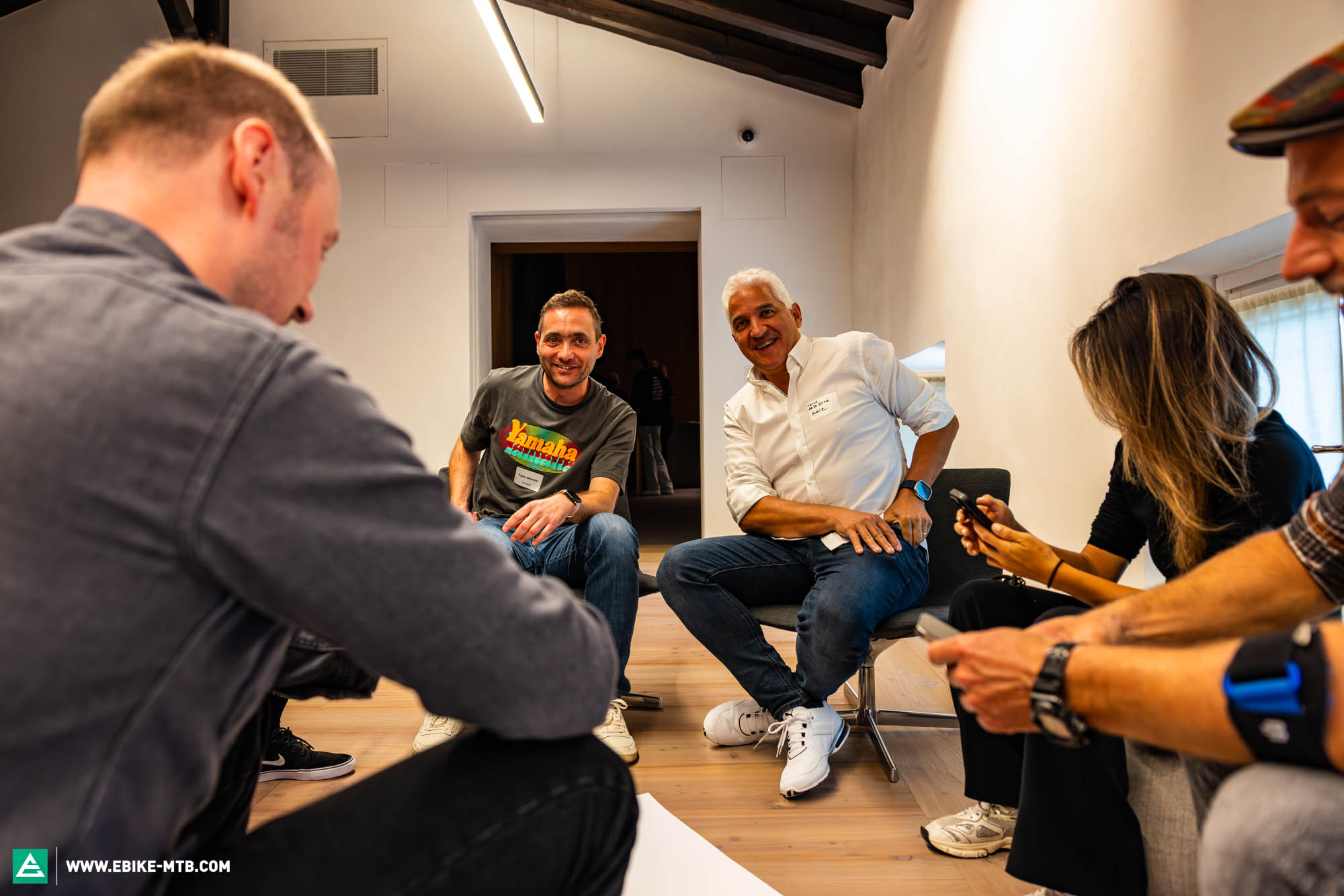
That’s when the idea took shape: to take these talks beyond Brixen.
To turn two days of notes and late-night debates into something that lives on.
Not another report.
Something riders, dealers, and brand people could all connect with.
That’s how The Brixen Bike Papers were born – a bridge between what was said in that room and what still needs to be heard.
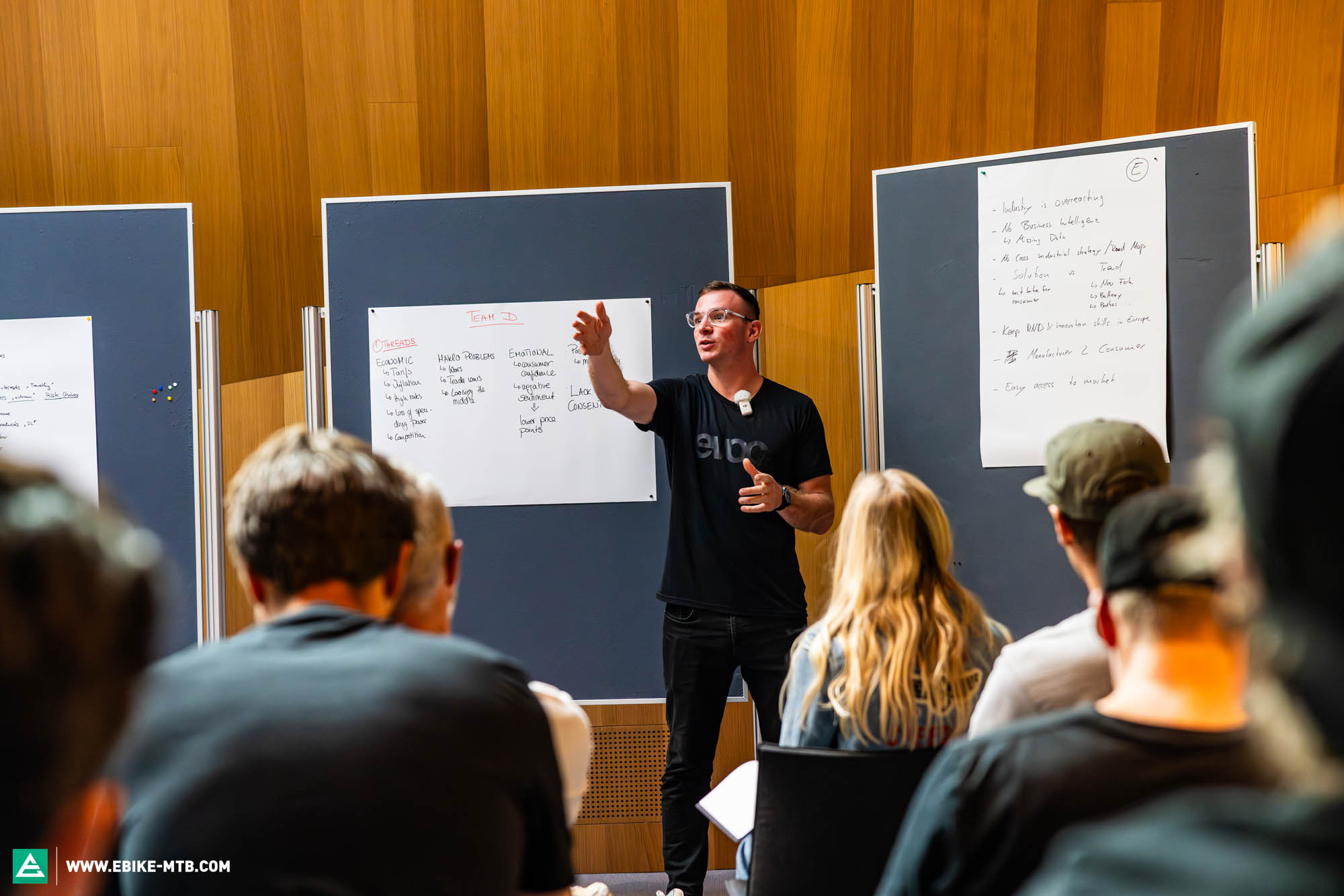
In a way, it’s our industry’s own version of Andersen’s fable, The Emperor’s New Clothes.
For too long, we’ve all played along – nodding at half-truths, chasing trends, pretending everything was fine while the obvious went unsaid.
Collective illusions happen when individuals conform to a group’s false beliefs, often out of social pressure.
These Papers aim to do the opposite: to break that spell, to name what’s real, and to challenge the status quo that keeps us comfortable – and stuck.
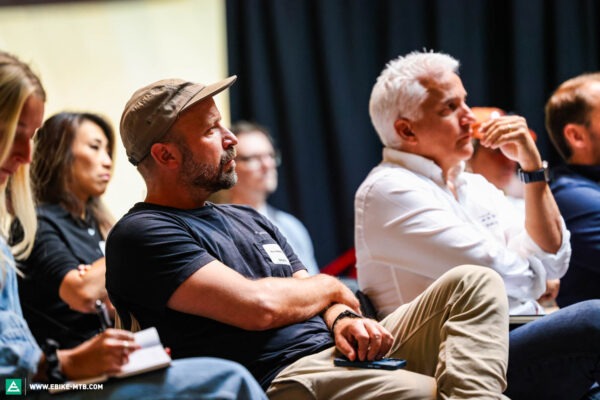
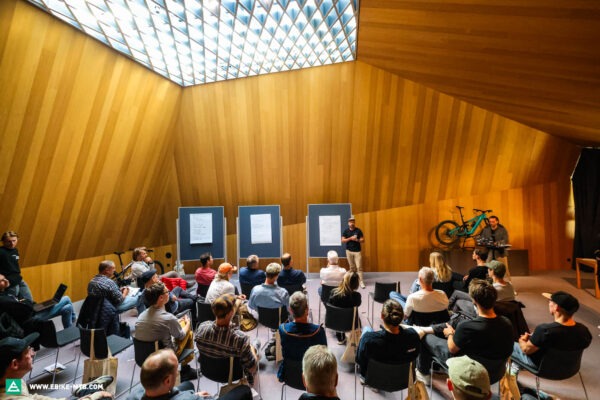
We don’t need more brands – we need less brands and different ones.
Same geometry, same suppliers, same slogans. Another logo, half a degree slacker head angle – is that really innovation?
Some bike brands will – and should – disappear. There are just too many doing the same thing, but expecting different results.
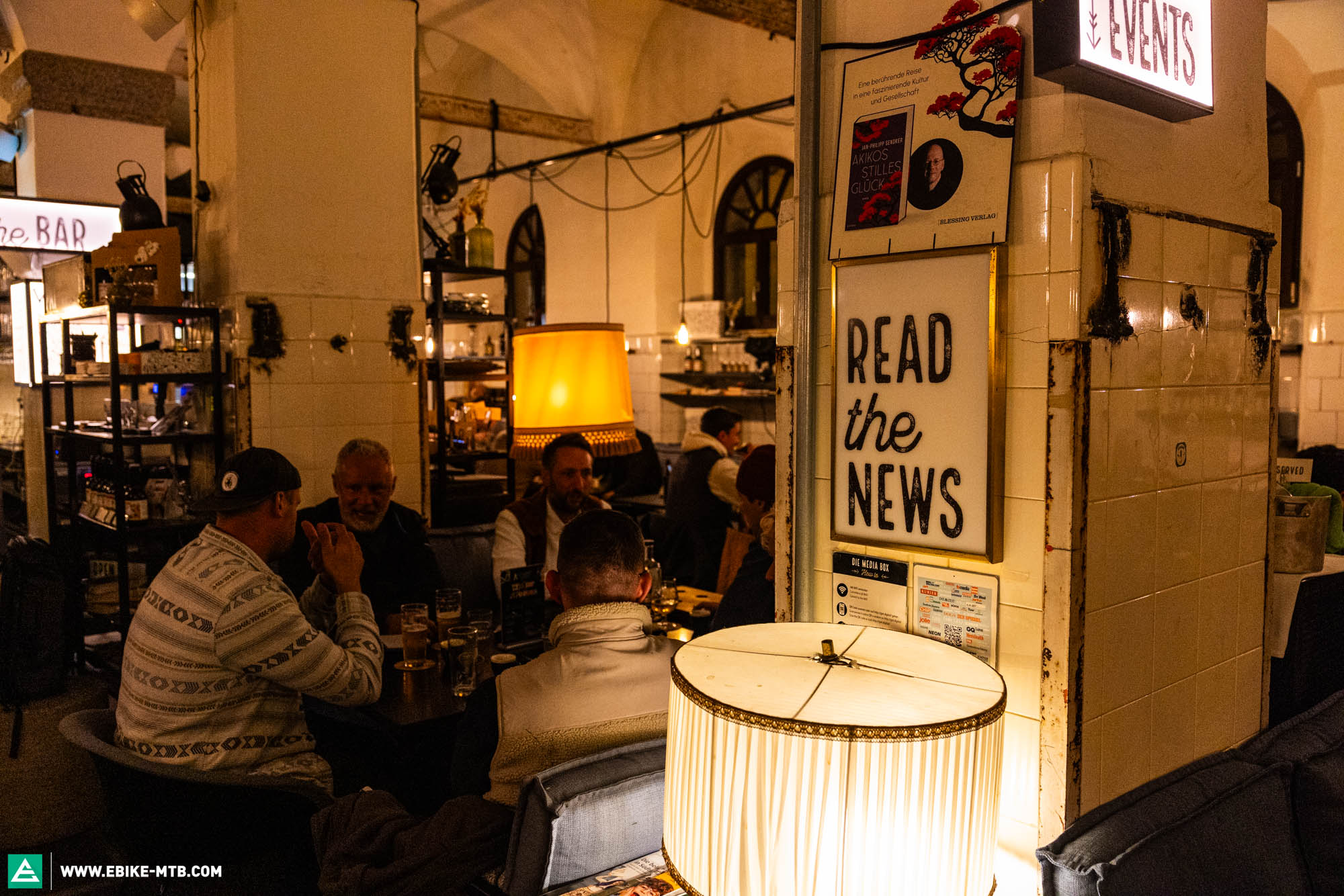
There’s no more space for sameness. And that goes for the people too.
What worked ten years ago won’t work tomorrow. The game has changed – and so have the players. During the boom, teams exploded. But did the results? Or did we just create more titles, more meetings, more noise – and less real value? And slower decision making as a byproduct.
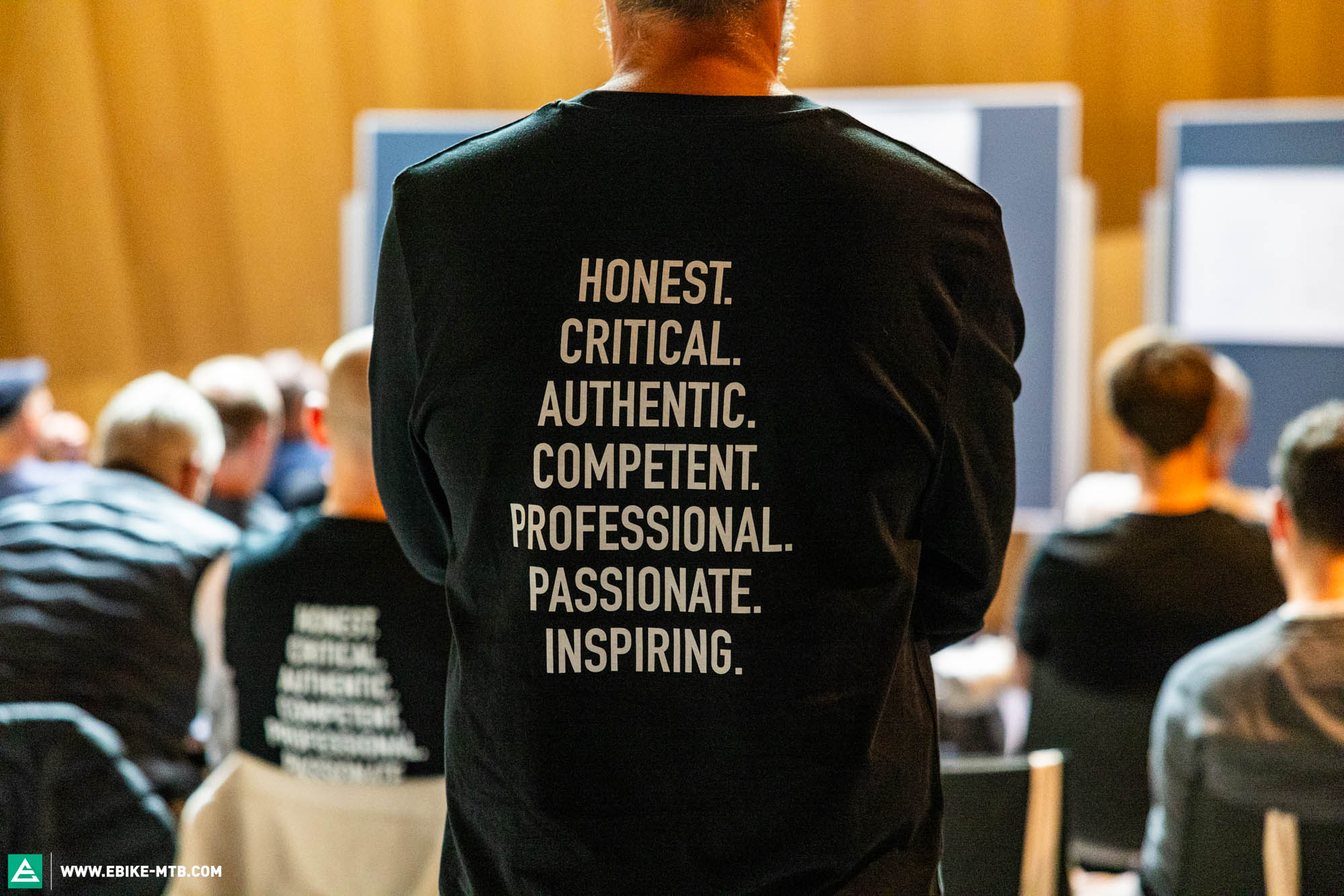
We need the brands and people who dare.
Those who challenge what’s normal, who build pyramids stone by stone instead of castles of sand.
So let’s stop patching holes in a sinking ship – let them sink. And start building a better one.
Because the future of biking won’t be defined by those who copy what worked yesterday, but by those bold enough to take the faith of leap and build what riders, customers and the industry really need tomorrow.
Breaking the Cycle – From Surviving to Leading
Those who joined our Think Tank in Leonberg earlier this year – or read “Are We Dumb?” – know that 41 Publishing’s co-founder Robin Schmitt draws heavily from Kung Fu philosophy. Every student knows: if you get punched in the face, the problem was your previous move. The same goes for us.
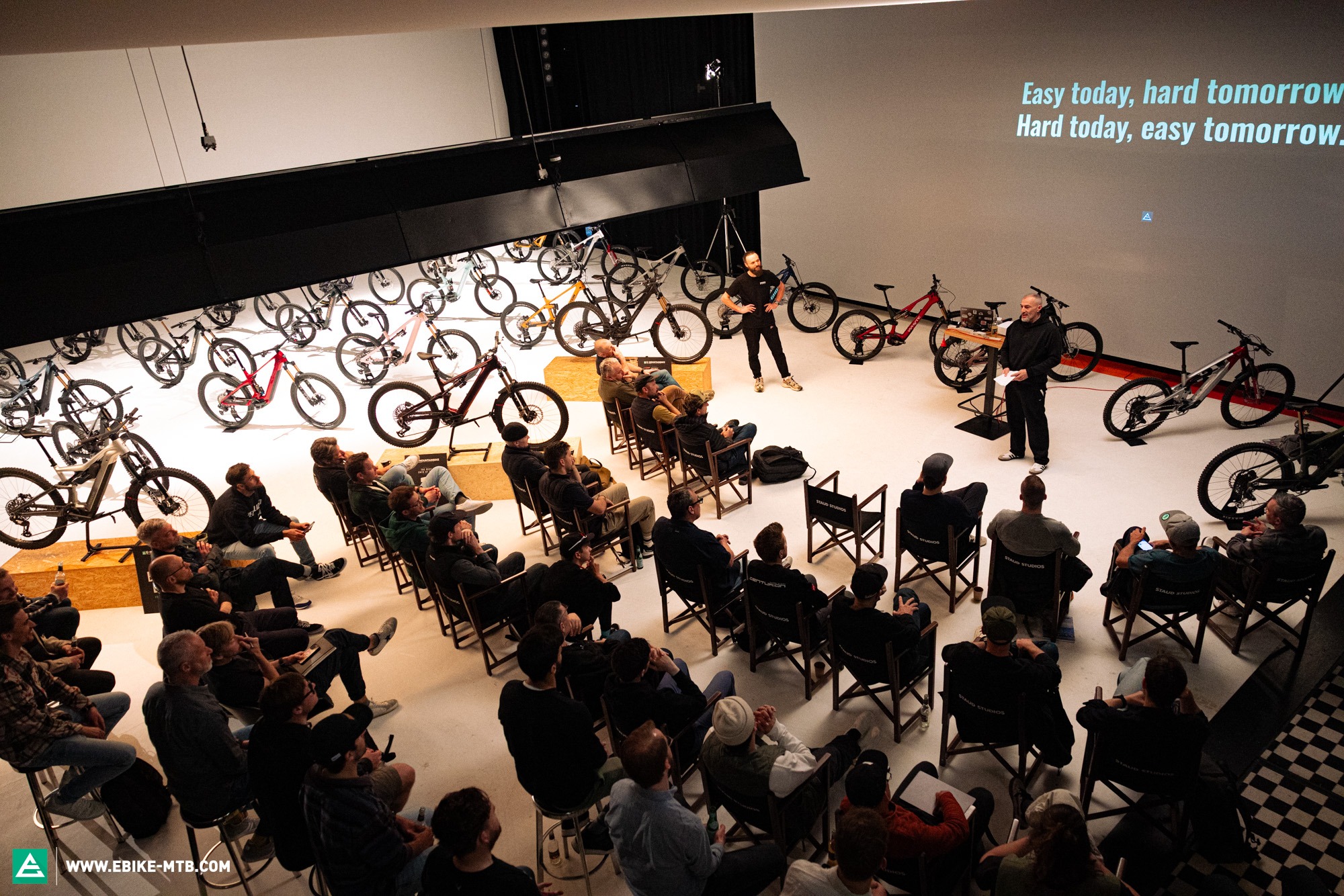
Cycles repeat until we break them. We can’t keep reacting to the market and expect to lead it. We can’t fear every wave – we have to learn to surf it.
Kung Fu teaches one simple truth: stop chasing.
The moment you chase, you’re already behind. Step back. Reposition. Start fresh. Because if you’re always fighting fires, you’ll never take control – and some fires aren’t even worth putting out.
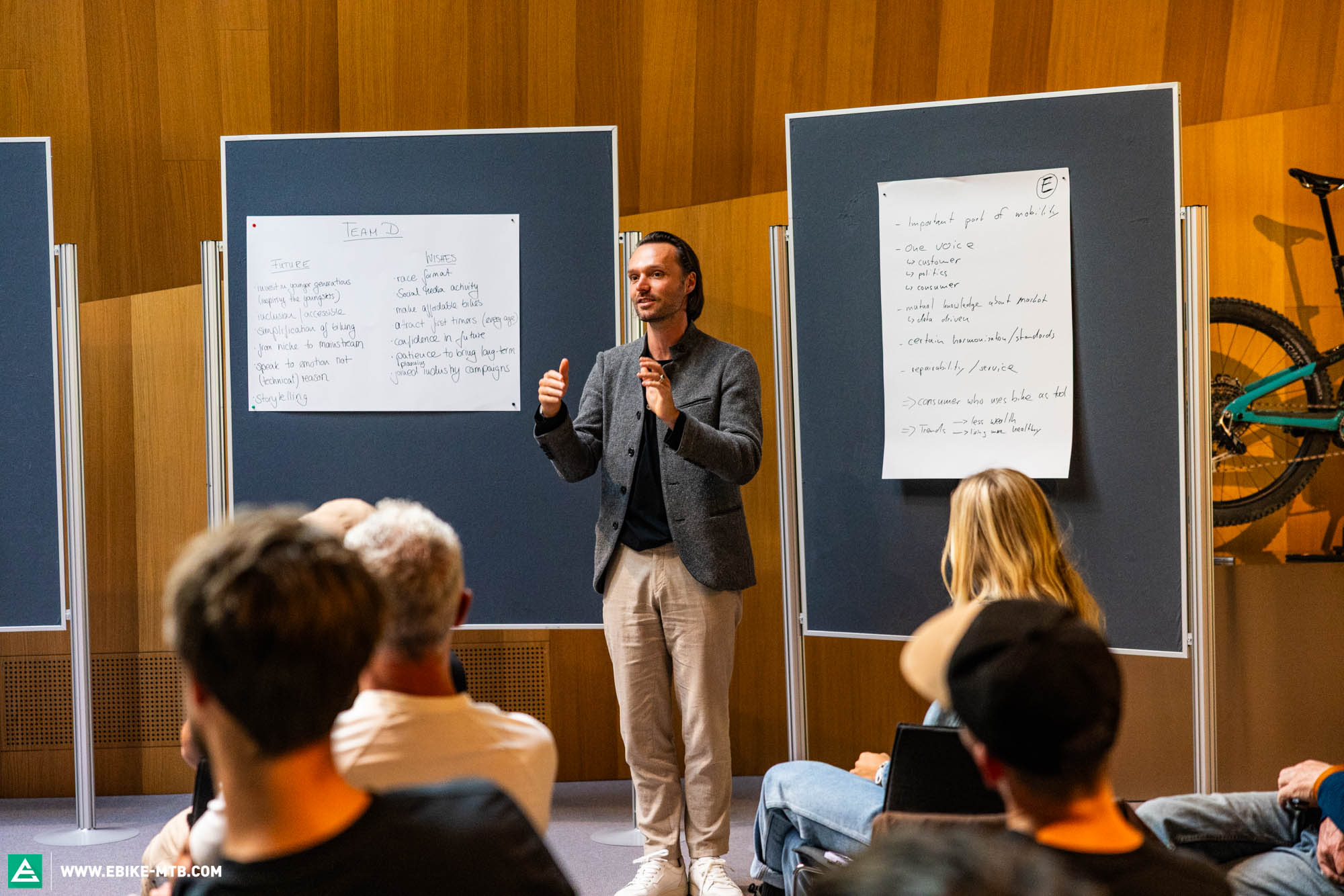
The same goes for our industry. We don’t need another rescue – we need renewal.
Leaders with the courage to say, “This doesn’t work anymore.”
If we want to win in five years, we have to get strong where it matters. We need to stop doing things just because that’s how they’ve always been done. And start building toward what we need for a successful future.
This also means: We don’t need more brands. We need fewer – and stronger ones. For too long, we’ve built an industry of survivors, not leaders. But surviving isn’t enough anymore.
What’s next? The Brixen Bike Papers
In the coming months, we’ll publish The Brixen Bike Papers – eleven essays diving deep into the uncomfortable truths, hidden opportunities, and real changes our industry needs.
Each Paper will dig into one of those themes – copy-paste culture, the dealer gap, self-inflicted data blindness, the search for purpose, and some more.
Not theory. Reality.
No fluff, no PR glaze – just the stuff we all know but don’t often say. And don’t acknowledge our role in all of this.
Because cycling’s future won’t be shaped by algorithms or anodised bolts.
It’ll be shaped by people who still care – who connect business with belief and know that selling a bike isn’t the same as inspiring someone to ride it.
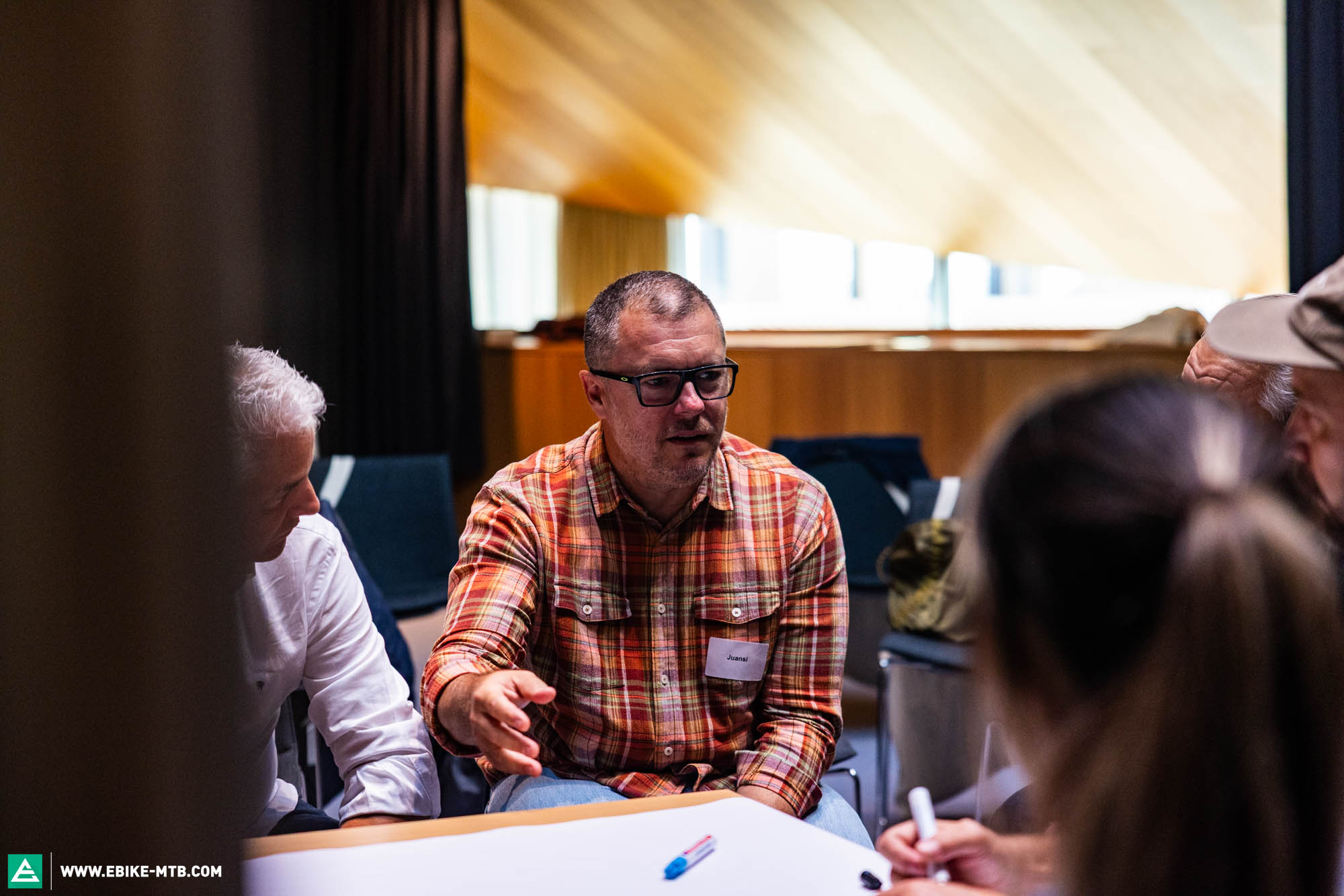 Unfiltered and unapologetic. Juansi Vivo brings clarity and courage to the table. Together with 41 Publishing, he’s driving the conversation forward – proving that real progress begins when we stop just reporting and start shaping. As co-author of the Brixen Bike Papers, you can be sure you’ll hear more from him soon.
Unfiltered and unapologetic. Juansi Vivo brings clarity and courage to the table. Together with 41 Publishing, he’s driving the conversation forward – proving that real progress begins when we stop just reporting and start shaping. As co-author of the Brixen Bike Papers, you can be sure you’ll hear more from him soon.
At its core, The Brixen Bike Papers are a call to leadership. To rebuild on stronger ground. To lead again. They won’t just describe the industry – they’ll challenge it.
Let’s be honest – the change we’re talking about won’t happen overnight.
It needs a clear roadmap, not just enthusiasm.
It needs consistency, not just a declaration.
It needs commitment, not just showing up for the picture.
We need to define where we want to be and how we get there, step by step.
A path that lets us implement the shifts that will actually secure the industry’s future – not just talk about them.
Progress always starts the same way: a bit of discomfort, a dose of honesty, and someone willing to say “we can do better.”
And yes. We can. So let’s embrace it. And build better – together.
The Closing Scene
By Thursday evening, Brixen had found its rhythm – mornings of debate, afternoons on the trails, nights that slipped into laughter.

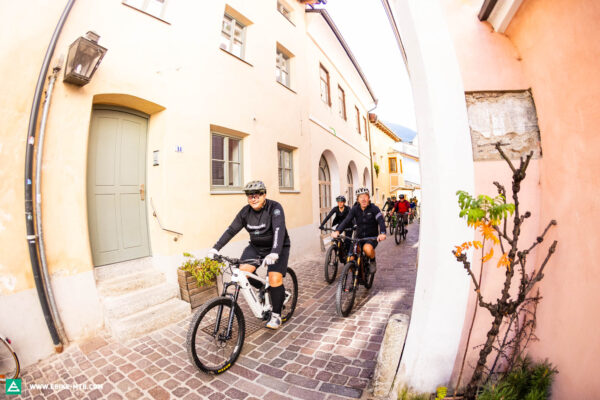

After the morning workshops, we headed out one last time.
The light was golden, the air warm, and the fatigue already mixed with that quiet satisfaction that only comes after some solid thinking, debating, and pedalling in good company.

The ride ended at a vineyard outside town.
Long tables, local wine, food that kept coming.
Törggelen. A local tradition – chestnuts roasting, laughter rising, new wine flowing.
No speeches. No closing slide decks.
Just people, connected by the same passion, finally talking like riders again.
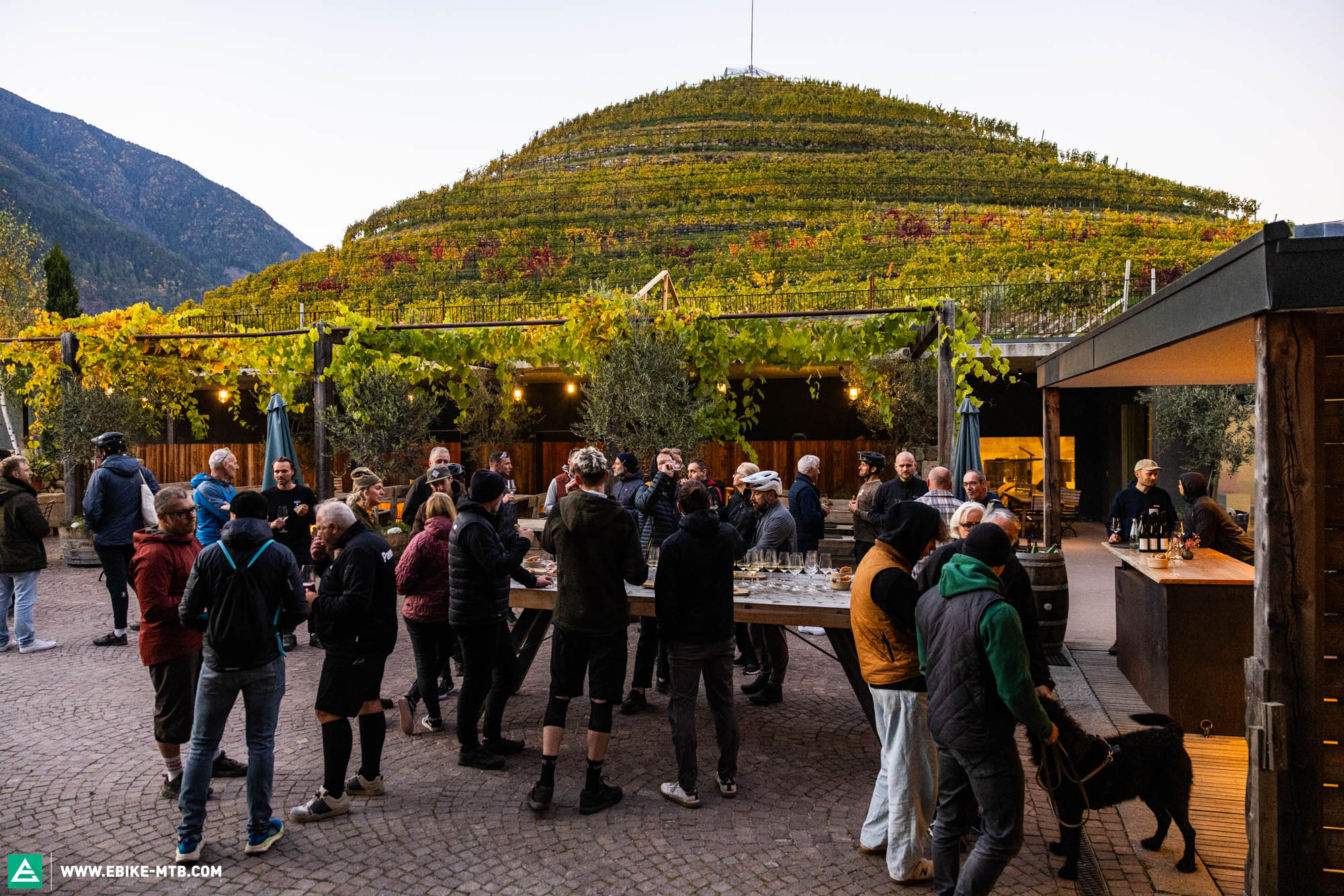
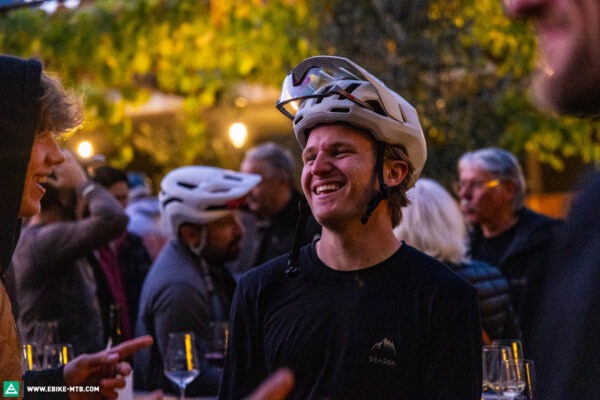

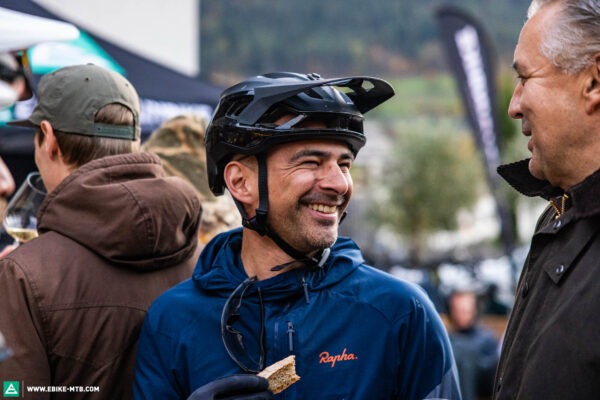
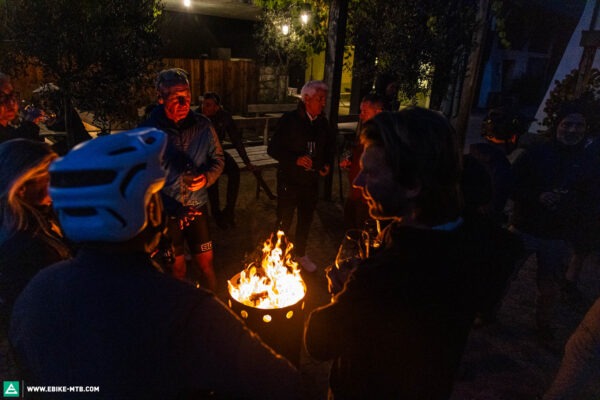
Friday morning came early. Coffee, another workshop and further walls being torn down. No
No applause. No slogans. Just understanding.
Special thanks to the City of Brixen – for their genuine collaboration and for betting on innovation and cycling as a structural part of daily life in Brixen and the region’s identity.
Their vision is the reason why gatherings like this one can exist at all.
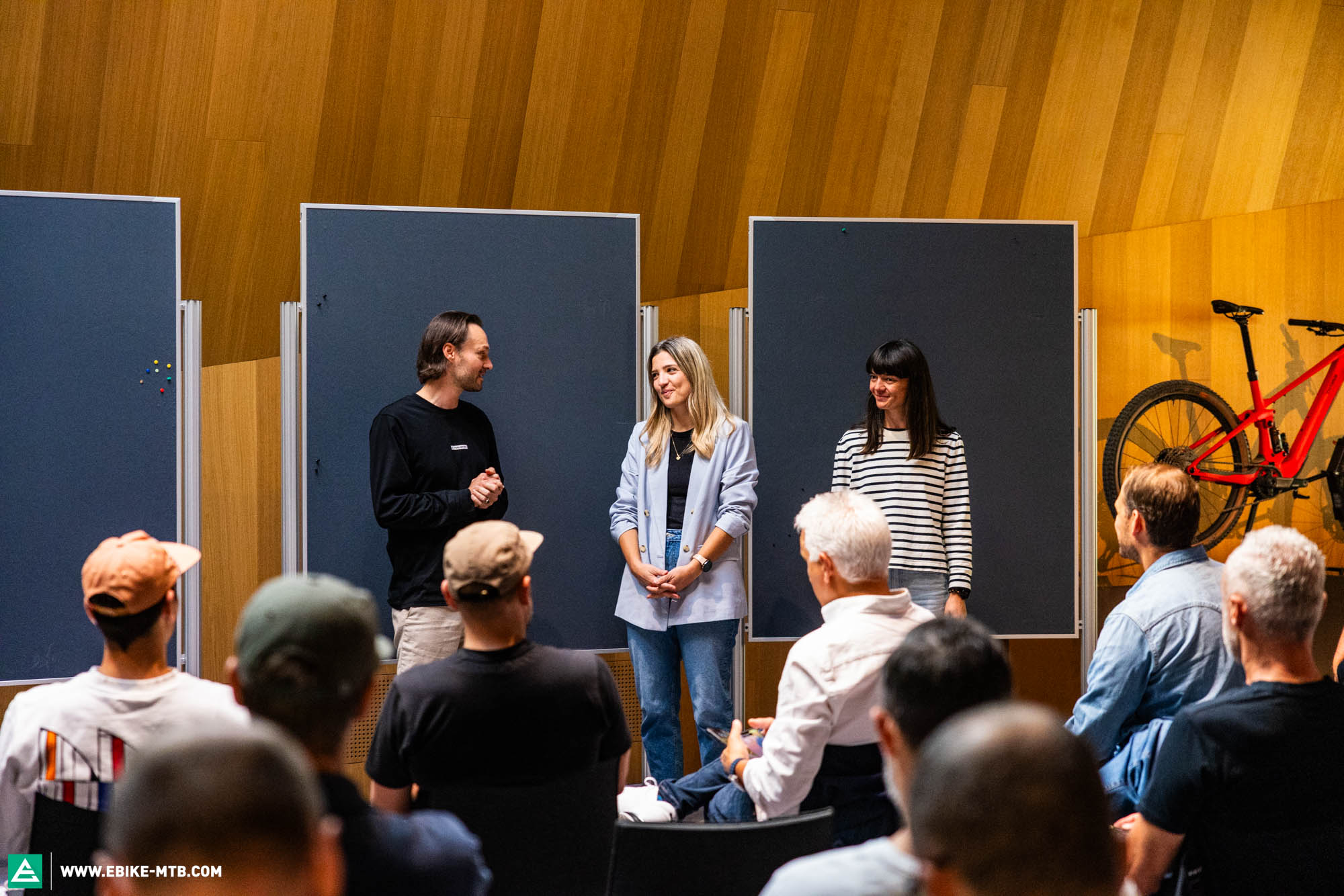 Thanks to Vera and Hanna from Brixen Tourism for making the Think Tank happen.
Thanks to Vera and Hanna from Brixen Tourism for making the Think Tank happen.
Check out this article, to step behind the curtain and explore the places where the Think Tank came to life.
And that’s what The Brixen Bike Papers aim to keep alive – the honesty of those days, the courage of the conversations, and the will to challenge the status quo of the bike industry with insight, humility, and intent.
Because change doesn’t always start with noise. Sometimes it starts quietly – around a table, between rides, in a library full of bikes and ideas.
And in Brixen, that’s exactly how it started.
Overview – The Brixen Bike Papers
The Brixen Bike Papers – a 41 Publishing Think Tank initiative, building better one story at a time. Eleven essays diving deep into the uncomfortable truths, hidden opportunities, and real changes our industry needs. Here’s an overview of all papers:
The Brixen Bike Papers
Release Date
1. The Industry’s Next Innovation Isn’t a Bike – It’s Unity
11.11.2025
2. The Eurobike Sabbatical – A Clear Answer for 2026
18.11.2025
3. Ingredient Marketing – The Bike World’s Marketing Fiasco
25.11.2025
4. To be announced soon
02.12.2025
5. To be announced soon
09.12.2025
6. To be announced soon
16.12.2025
7. To be announced soon
23.12.2025
8. To be announced soon
30.12.2025
9. To be announced soon
06.01.2026
10. To be announced soon
13.01.2026
11. To be announced soon
20.01.2026
You want more than just to read along?
Got questions, ideas, or honest feedback about the Think Tank or the Brixen Bike Papers?
Then write to Robin at robin(at)41publishing.com
We might not be able to reply to everyone — but we’ll read every message carefully.
We’re looking forward to your thoughts!

Words: Juansi Vivo, Robin Schmitt Photos: Jan Fock, Benedikt Schmidt, Peter Walker

